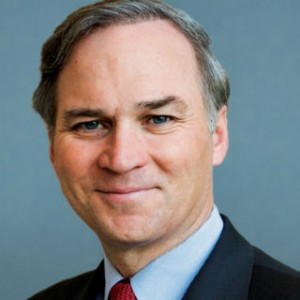
Over the past several years, with the support of her family and the consistency of stable health insurance, Ms. Blackwood has undergone regular treatments. Her survival is due in part to what her son calls an “indomitable will,” and in part due to the availability of a semimonthly cancer medication that slows her disease. For years, her insurance covered the cancer drug at 100% for a premium affordable for the Blackwoods.
But last year, Ms. Blackwood’s experience changed. This time, it was not because of a change in her cancer or other cancer-related health issues. In November last year, around the point in time when health insurance exchanges opened to Americans, Ms. Blackwood lost the health insurance plan she had held for nearly 20 years. This left her fighting to figure out how she could afford the cancer medication that arguably had helped keep her alive all of these years. Without coverage, the treatment would cost upwards of $14,000 a month.
So she turned to Obamacare. When she tried to enroll, Ms. Blackwood found an exchange website that did not work. She spent hours on the phone with enrollment agents, and she received competing information. Agents told her she would be covered at 100%. After buying a plan, however, the insurance company later told her it would not cover her medication at all. In a fight for her lifeline, and perhaps under pressure from reports in the news media, the insurance company agreed to cover Ms. Blackwood’s treatments for the remainder of this year, but not beyond that.
Ms. Blackwood’s son went to the Wall Street Journal with her story, a piece that the newspaper ran and that several other media outlets subsequently published. Ms. Blackwood herself is a family medical practice administrator with knowledge of healthcare management issues. Her husband is a physician. All of these things certainly worked to Ms. Blackwood’s advantage in fighting for coverage. But what if you didn’t have a story in the wall street journal to call attention to your situation? Or a background in medicine to help make sense of the complex maze of Obamacare? It is very possible that the circumstances could have turned out differently for someone else. Even still, at the end of this year, Ms. Blackwood will find herself once again fighting for a lifeline that just months ago was readily available and affordable for her. Therein lies the harsh irony of the Affordable Care Act.
Obamacare has been mired in problems from the beginning. The poorly planned roll out of exchange websites left citizens frustrated and confused. In fact, as of February, 22,000 Americans have filed requests to fix errors in their health insurance coverage that occurred because of website glitches. A report by the Obama Administration said at least 11 million people will see their premiums increase. Earlier this month, the Administration extended the March 31 deadline for enrolling (for those who tried to enroll during the open enrollment period, but did not complete the process) in Obamacare to be sometime mid-April on a date yet to be determined. According to news reports, since the law’s enactment in 2010, the Administration has acted at least 18 times to delay or alter various parts of the law. It’s no wonder that six in 10 uninsured adults are not aware of the enrollment deadline, according to a Kaiser Family Foundation poll.
While the computer mishaps, the delays, and the errors can appear ironic, annoying, comical, or frustrating, they are so much more than that. There are real people like Ms. Blackwood whose lives have been shaken because of Obamacare. The percentages, the numbers, and the figures represent individuals’ health, their family budgets, and their livelihoods. In some cases, they represent situations of life or death. For Ms. Blackwood, Obamacare isn’t a problem. It’s a barrier to a healthy life.
Access to affordable healthcare should not come at such a high price. Citizens should not live in the fear that their lives will become unhinged because of new complexities in the healthcare system.
Sitting across from Ms. Blackwood in my Chesapeake Office, I thanked her for her will to fight, and I shared with her my resolute commitment to repeal or defund and replace Obamacare. I will not give up the fight. As Ms. Blackwood reminds us, there is simply too much at stake.
For a list of ways in which I continue to work to end Obamacare, visit my website www.forbes.house.gov or follow me on Facebook at www.facebook.com/randyforbes.
Randy Forbes represents the Fourth District in Congress.










